
The CMA CGM Group recently received its 400th owned vessel, the CMA CGM Monte Cristo, the first in a series of six methanol container ships.This key milestone reflects the Group’s long-term investment strategy, built on asset ownership and the integration of advanced technologies to enhance the environmental and operational performance of its fleet.
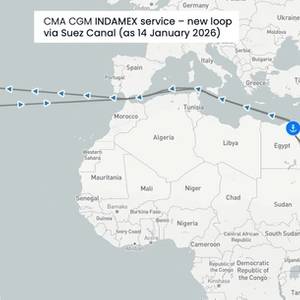
Major carrier CMA CGM has announced its INDAMEX service will transit Suez Canal on fronthaul and backhaul voyages between India/Pakistan and US East Coast in a notable step towards a largescale return of container ships to the Red Sea region.The first vessel to complete a full service loop via Suez Canal will be CMA CGM Verdi, sailing from Karachi to New York on 15 January.
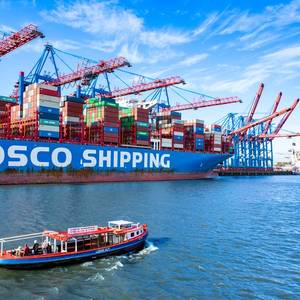
The U.S. and China on Tuesday began charging additional port fees on ocean shipping firms that move everything from holiday toys to crude oil, making the high seas a key front in the trade war between the world's two largest economies.A return to an all-out trade war appeared imminent last week
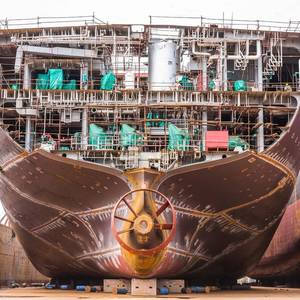
The U.S. is one week away from imposing port fees on certain vessels with links to China, a move expected to cost the top 10 carriers $3.2 billion next year as President Donald Trump seeks to address China's growing dominance on the high seas."While some observers believe the October 14 deadline may be extended - or even scrapped - as part of broader negotiations

U.S. President Donald Trump's administration is on a mission to weaken China's global network of ports and bring more strategic terminals under Western control, according to three sources familiar with the plan.The drive is part of the most ambitious effort to expand U.S. maritime influence since the 1970s and is designed to address growing fears in Washington that it would be at a disadvantage
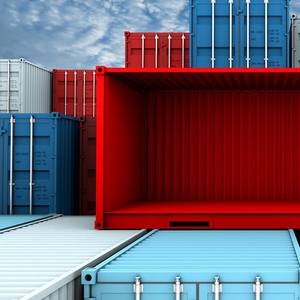
Major container shipping companies are suspending at least six scheduled weekly routes between China and the United States as President Donald Trump's punishing tariffs on the world's top exporting country collapse trade, maritime consultants said.The ships on those routes have the combined capacity to deliver 25,682 40-foot containers stuffed with toys, tennis shoes, car parts and things U.S.
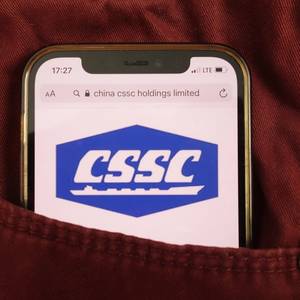
The United States is preparing to impose docking fees at its ports on any ship belonging to a fleet that includes Chinese-built or Chinese-flagged vessels, according to a draft executive order, a move aimed to both revitalize U.S. shipbuilding while countering China’s dominance in global shipping and shipbuilding.
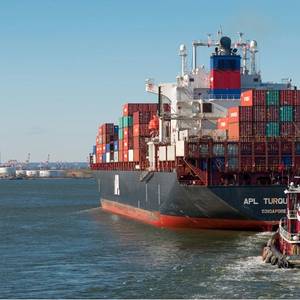
CMA CGM Group has announced a $20 billion investment to contribute to U.S. maritime economy and support the transformation of America’s domestic supply chain over the next four years.The announcement builds on CMA CGM Group’s 35-year presence in the U.S. Today, the Group operates in 40 states and employs 15,000 Americans. As a leading partner in U.S.
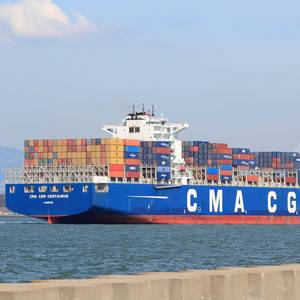
U.S. proposals to hit Chinese vessels with high port fees would have a major impact on all firms in a container shipping industry in which most vessels are built in China, French-based shipping firm CMA CGM said on Friday.The U.S. Trade Representative's office has proposed charging up to $1.5 million for Chinese-built vessels entering U.S.
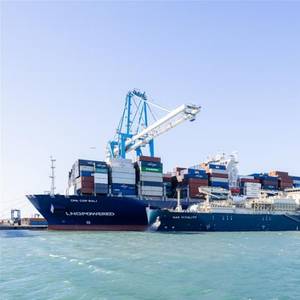
TotalEnergies and CMA CGM Group have entered into an agreement to develop a 50/50 logistics joint venture dedicated to the implementation and operation of a liquefied natural gas (LNG) bunker supply solution at the port of Rotterdam, in the Netherlands.The strategic partnership reflects the shared ambition of both French companies to work jointly towards the acceleration of the energy transition
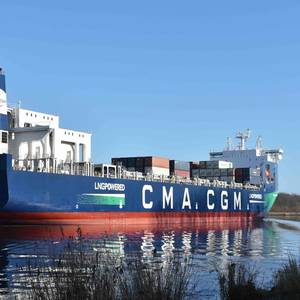
French shipping group CMA CGM will reorganise its global fleet to avoid U.S. port fees on Chinese-built vessels that are due to take effect from October, the company's finance director said.The port charges are another operational headache for shipping firms wrestling with the fallout from U.S.

The CMA CGM Group welcomed the arrival of the first Indian flagged containership registered by a major foreign carrier, CMA CGM Vitoria, at Nhava Sheva Free port Terminal on April 28, 2025, in the presence of Honourable Minister of State for Ministry of Ports, Shipping and Waterways of India, Shri Shantanu Thakur.Mr.